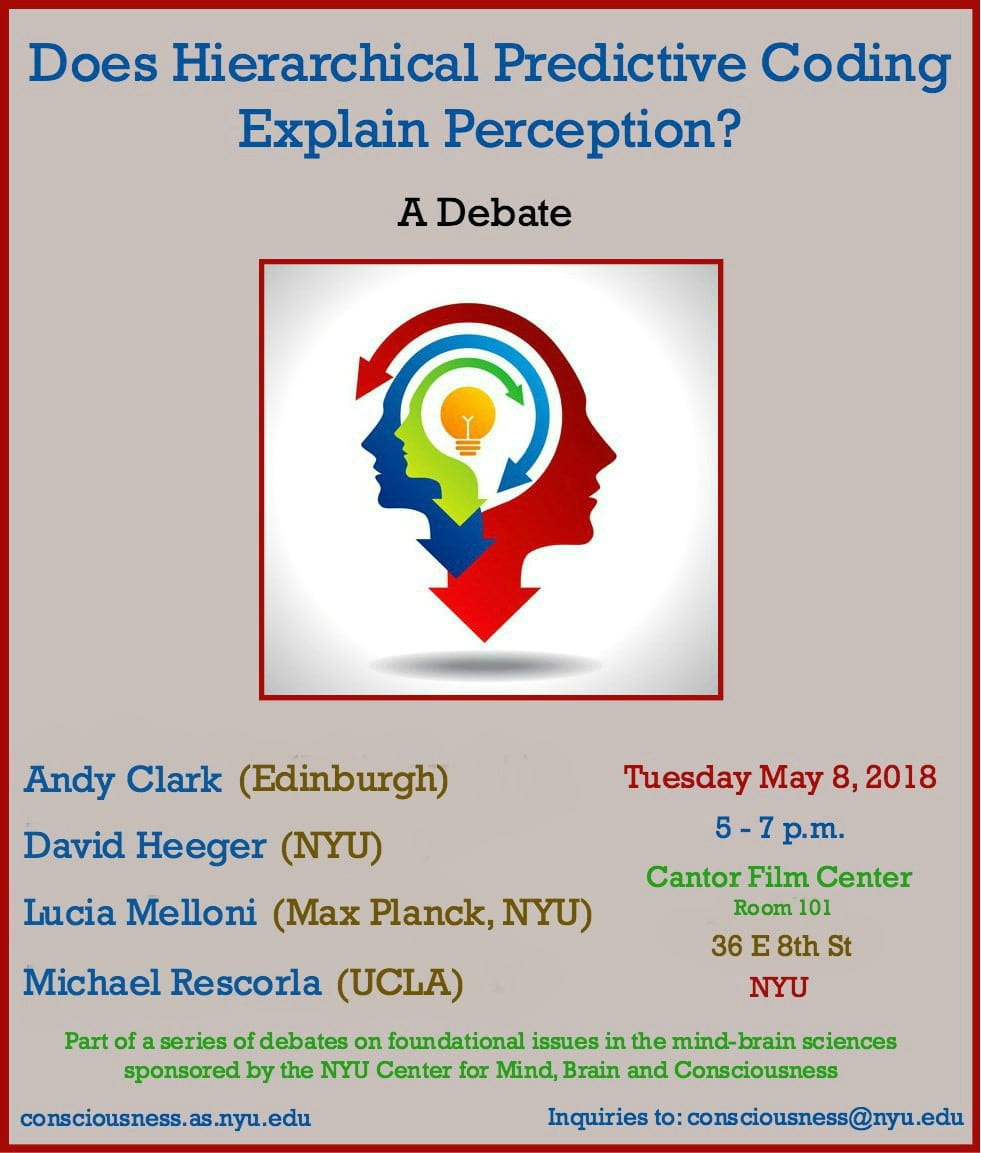DOES HIERARCHICAL PREDICTIVE CODING EXPLAIN PERCEPTION?
Predictive models of perception propose that perception works by making predictions about sensory inputs and minimizing prediction error. Hierarchical predictive coding models say that at each layer in the visual hierarchy, predictions are made about the layer below. Any differences between predicted input and actual input are propagated up the visual hierarchy by the mechanism of predictive coding, altering the system to reduce prediction errors in the future. According to some theorists, this approach portrays perception as “controlled hallucination”. This event will bring two neuroscientists and two philosophers together to debate how well this approach can explain perception.
Speakers:
Andy Clark (Philosophy, University of Edinburgh) [Andy Clark’s Slides]
David Heeger (Center for Neural Science, NYU) [David Heeger’s Slides]
Lucia Melloni (Neurology, Max Planck Institute / NYU)
Michael Rescorla (Philosophy, UCLA) [Michael Rescorla’s Slides]
Tuesday, May 8, 2018
5:00 – 7:00 pm
Cantor Film Center, Room 101
36 E 8th St, New York, NY 10003
No registration is required. Seating is first come, first served. A reception will follow the event.
This event is part of a series of debates on foundational issues in the mind-brain sciences sponsored by the NYU Center for Mind, Brain, and Consciousness, directed by Ned Block and David Chalmers.
inquiries to: consciousness@nyu.edu

